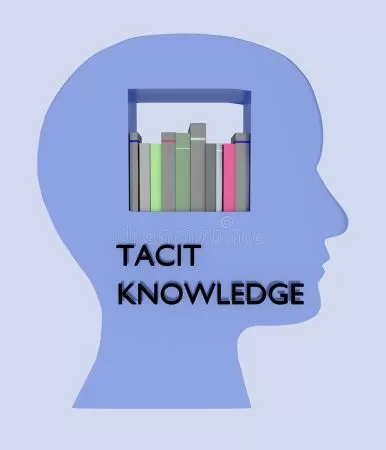Top 10 Psychological Tricks to Boost Your IQ
It's typical to conceive of intellect as something you're born with. After all, some people make being clever appear effortless. However, intelligence is not a fixed characteristic. It is a variable, adaptable ability to learn and excite your brain that may improve with time. The idea is to develop lifestyle behaviors that support and protect your brain. Continue reading to find out what research has to say about how you can improve both your crystallized and flexible intelligence.
1
Cognitive Innovation

Intelligence can be a difficult concept to describe or categorize. To solve issues, grasp language, and adjust to change, you rely on a variety of cognitive abilities, yet we know relatively little about what makes one person "more brilliant" than another. Although there is no all-encompassing theory of intelligence, psychologists such as Robert Sternberg have developed valuable models that help individuals like us understand where intelligence comes from and how it evolves through time. Sternberg categorizes intelligence into three types: analytical intelligence, practical intelligence, and the category we'll look at now: creative intelligence. Your ability to find fresh answers to old issues is referred to as creative intelligence. For example, how do you brush your teeth if you don't have a toothbrush? Solving this type of challenge necessitates a creative mind, thinking outside the box, and a willingness to break the rules. But here's the catch. Only a tiny percentage of people regularly use their creative intelligence. In other words, most people do things the same way they've always done them, and they rarely push themselves to think differently. We'll look at a real approach called the Alternative Uses Task, which was developed in the 1960s for a real psychology experiment, to help you increase your creative thinking. Choose a straightforward challenge, such as putting on your shoes or pouring milk into a bowl of cereal. Next, consider as many uncommon or unconventional solutions to the problem as you can. Your solutions do not have to be game changers. They don't even have to be logical. However, each task should force you to think outside the box. This allows your creative thinking to grow and improve by putting it on exhibit.
2
Tacit Intelligence

Another strong intellectual capacity is tacit intelligence, which describes your ability to apply past information and experiences to new situations. Assume you've just started a new job doing something you've never done before. You've never done this particular job before, but that doesn't imply you're inexperienced. Someone with tacit intelligence understands that useful lessons can be learned in unexpected places. Unfortunately, most people do not inherently possess implicit intelligence. In fact, most people struggle to connect old experiences with new ones, particularly on the job. The issue, however, has nothing to do with their IQs. The issue... is the way they think. When confronted with an issue, you, like many others, may become sidetracked by exterior characteristics. Assume you are selling an automobile for the first time in your life. Because you've never sold a car before, you feel unskilled and confused, but the truth is... you have more experience than you realize. Perhaps you've already purchased a car, exposing yourself to the strategies of other, more successful salespeople. My point is that you are never entirely out of your element. When confronted with a task, ask yourself, "Have I done anything similar in the past?" If so, how can I apply lessons from my history to future challenges?" You may know more than you think if you think hard and reflect on your accomplishments.
3
Novel Stimulation

It takes more than academic procedures and everyday activities to raise your IQ. In reality, one of the simplest methods to boost your IQ is with a simple adjustment in lifestyle. Many people spend the majority of their life stuck in monotonous, repetitive activities. Every day, you turn off your brain and engage in things that do not excite it. While no one can avoid boredom, it is vital to challenge your mind with new ideas, interests, and trips. Otherwise, your brain, like any other muscle, would weaken and become more sluggish with time.
4
Natural Connection

Psychologist Howard Gardner defines another type of intelligence that he calls Naturalist Intelligence. Naturalist intelligence is associated with a strong affinity to the natural world. They enjoy learning, exploring, and spending time in nature, and they have a strong concern for other living things. Naturalist intelligence, like any other type of intelligence, is a cognitive talent that may be developed over time. Consider your relationship with nature to be similar to that of a close friend. You strengthen that link by spending time together, finding common ground, and exposing deeper vulnerabilities. It may feel awkward or uncomfortable to form the same connection with nature, but regular excursions into nature, such as walks, hikes, and other outdoor activities, can create deeper, emotional attachments and deepen your understanding of the natural world. Naturalist intelligence may make you more ecologically conscious, but it also has an impact on memory, creativity, and problem-solving abilities. Walking through a forest or going up a mountain may not appear to be intellectual hobbies, but the truth is that your relationship with nature typically reflects your overall intelligence. Learn more about the world... and you might learn more about yourself.
5
Visual Entertainment

Many of the most intelligent people are good visual thinkers. They can quickly visualize and manipulate complex items in their imaginations to solve complex problems. For example, architects use visual intelligence to design enormous structures such as buildings and bridges that can withstand heavy loads for hundreds of years. Visual problem-solving is an important skill and a sign of intellect, yet few individuals spend time learning it. Fortunately, there are a plethora of activities available to help you enhance your visuospatial reasoning. Consider origami, the art of folding paper. Origami presents a simple yet immensely complex challenge: how do you turn a single piece of paper into a complex shape, such as a dragon or a crane? Origami constantly challenges you to solve visuospatial difficulties, increasing your creativity and forcing your mind to think in geometrical forms such as lines, angles, and shapes. Students, teachers, and professionals worldwide utilize origami to develop their visual thinking and problem-solving abilities. In fact, a 2000 study discovered a strong association between visuospatial brain games like origami and higher standardized exam scores. So take a piece of paper and start folding. With a little effort, you can sharpen your visual thinking, boost your IQ, and stimulate your creativity simultaneously.
Suitable for you
02-07-2023 cookie
01-07-2023 cookie
26-06-2023 cookie
12-06-2023 cookie
03-06-2023 cookie
